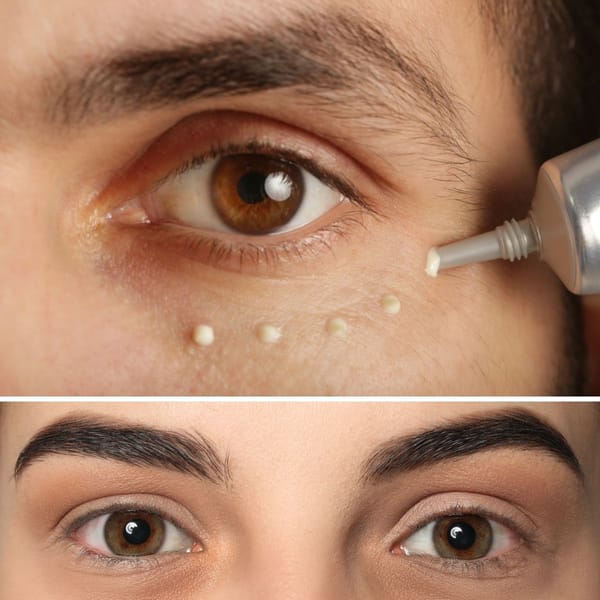Key Takeaways:
- Effectiveness of Liquid Collagen: Liquid collagen can potentially improve skin elasticity, hair health, and nail growth, but results vary.
- Scientific Backing: Studies suggest that hydrolyzed collagen peptides in liquid form are more easily absorbed by the body.
- Considerations and Alternatives: While beneficial, liquid collagen should be part of a balanced diet; also explore other sources like collagen-rich foods.
Introduction to Liquid Collagen
Liquid collagen is touted as a miracle elixir for everything from radiant skin to stronger nails. But does drinking collagen really live up to the hype? This article dives deep into the science and real-world applications of liquid collagen supplements to give you a clear picture.
What is Liquid Collagen?
Collagen is a protein that acts as a crucial building block for skin, hair, nails, and connective tissues. Liquid collagen, often derived from animal collagen like bovine or marine sources, is processed into a form that the body can absorb easily.
Absorption: The Key Advantage
One of the primary claims of liquid collagen supplements is that they are more readily absorbed. The hydrolyzed form of collagen peptides found in liquids enters the bloodstream faster than those in powders or pills, potentially speeding up the benefits.
Collagen and Skin Elasticity
A significant draw for many users of liquid collagen is its promise to improve skin elasticity. By ingesting hydrolyzed collagen, you're directly supplying your body with the amino acids needed to support and enhance your skin's natural structure.
Hair and Nail Health Boost
Beyond just skin benefits, liquid collagen is often consumed with the hope of strengthening brittle nails and promoting hair growth. The amino acids in collagen support the keratin structures in hair and nails, potentially leading to noticeable improvements.
The Role of Collagen in Joint Health
Collagen isn't just about beauty. It's also crucial for joint health. Consuming collagen can help maintain the integrity of cartilage, the rubber-like tissue that protects your joints, potentially easing symptoms of joint pain.
Weight Management and Muscle Mass
Interestingly, collagen supplementation might also play a role in weight management and muscle building. The protein in collagen can help promote a feeling of fullness and is essential for maintaining lean muscle mass.
Collagen Drinks vs. Collagen-Rich Foods
While collagen drinks provide a concentrated dose, incorporating collagen-rich foods like bone broth into your diet is another effective way to boost your body's collagen levels naturally.
The Science Behind Collagen Supplements
Several studies indicate that specific bioactive collagen peptides can improve skin hydration and elasticity. However, the extent of these benefits can vary widely among individuals.
Exploring the Types of Collagen in Supplements
Liquid collagen supplements often boast a variety of collagen types, each targeting different aspects of health and beauty. Type I collagen, predominantly found in marine collagen, is lauded for its skin hydration benefits and its ability to improve skin elasticity. On the other hand, Type II collagen, usually sourced from chicken, is frequently associated with joint health. Consumers should consider their specific health needs when choosing a collagen supplement, as the source and type of collagen can significantly influence the effectiveness of the product.
In addition to the primary sources like bovine and marine collagen, some supplements also include eggshell membrane collagen, which is rich in Type V collagen. This type is known for supporting the formation of collagen fibers in hair, skin, and nails, potentially enhancing hair growth and strengthening brittle nails. Understanding the distinct properties of each collagen type can help users make an informed decision, ensuring they select a collagen supplement that aligns with their health and beauty goals.
Impact of Collagen on Digestive Health
Collagen supplements, particularly hydrolyzed collagen, are gaining attention for their potential benefits beyond skin and joint health. Hydrolyzed collagen, which is broken down into smaller peptides, is easier for the body to absorb. This form of collagen may play a role in supporting the health of the gastrointestinal tract. The amino acids in collagen help to maintain the integrity of the gut lining, which can prevent issues like leaky gut syndrome. This is crucial because a healthy gut lining helps to prevent toxins and other harmful substances from entering the bloodstream.
Moreover, the glycine and proline in collagen peptides can aid in reducing inflammation in the gut, which is beneficial for those suffering from inflammatory bowel diseases (IBD) such as Crohn's disease or ulcerative colitis. Regular consumption of collagen drinks or supplements might help in maintaining a balanced digestive system, thereby enhancing overall health and wellness. This makes collagen a valuable addition to a diet aimed at not only improving skin, hair, and nails but also fortifying the body's internal defenses against digestive disturbances.
Collagen and Heart Health
The potential benefits of collagen supplementation may extend to improving heart health. Collagen provides structure to blood vessels that carry blood from the heart to the rest of the body. Without sufficient collagen, blood vessels can become weak and fragile. This underscores the importance of collagen in maintaining cardiovascular stability and function. Consuming collagen may help in strengthening the blood vessels, thereby reducing the risk of vascular health issues.
Additionally, the amino acids in collagen, such as proline and lysine, play a crucial role in fat metabolism and the prevention of artery hardening. By aiding in the buildup of cells around the arteries and minimizing fat accumulation, collagen supplements can potentially lower the risk of heart conditions. This makes collagen drinks or powders a heart-friendly addition to a balanced diet, especially when combined with lifestyle choices that promote cardiovascular health. Thus, integrating daily collagen supplementation could be a proactive approach to supporting heart health.
The Synergistic Effects of Collagen and Vitamin C
Taking collagen supplements in isolation might not yield the maximum benefits unless paired with synergistic nutrients like Vitamin C. Vitamin C is crucial for the synthesis of collagen, aiding in the conversion of collagen into a form that can be used more effectively by the body. This synergy not only helps in maintaining the structure of collagen in the skin but also enhances iron absorption, which is vital for the blood vessels that support the skin's underlying structures.
Furthermore, incorporating foods rich in Vitamin C, such as citrus fruits, into one's diet can boost the body’s natural collagen production. For those consuming collagen drinks or thinking about starting a daily collagen supplement routine, adding Vitamin C can significantly amplify the benefits, improving skin texture and overall health. This combination ensures that the collagen consumed is not just absorbed but is also utilized effectively, promoting better skin and health outcomes.
Potential Side Effects
While generally safe, some people might experience allergic reactions or gastrointestinal issues from collagen supplements. It's crucial to listen to your body and consult with a healthcare provider.
Choosing the Right Collagen Supplement
Not all collagen supplements are created equal. Factors like the source of collagen, the type of collagen, additional ingredients, and the manufacturer's reputation should influence your choice.
Daily Dosage and Optimal Use
For best results, consistent and appropriate dosing of collagen is key. Most studies suggest a daily intake of approximately 10 grams of hydrolyzed collagen.
Combining Collagen with Other Nutrients
To maximize collagen absorption and effectiveness, combine your supplement with vitamin C-rich foods or a vitamin C supplement, which is essential for collagen synthesis.
Real People, Real Results
Anecdotal evidence and testimonials abound, with many users swearing by the noticeable improvements in their skin texture and joint comfort after starting collagen supplementation.
Expert Opinions
Dermatologists and nutritionists often support the use of collagen supplements, especially for individuals with deficiencies in their natural collagen production due to age or diet.
The Verdict on Liquid Collagen
While not a magic solution, liquid collagen does offer a viable option for those looking to supplement their collagen intake effectively. Its liquid form may offer faster absorption, potentially leading to quicker results.
Summary
Liquid collagen can be a beneficial addition to your health and beauty regimen, offering improvements in skin, hair, and nails, as well as joint health. However, it should be used in conjunction with a balanced diet and healthy lifestyle. Results can vary, and it's important to choose a high-quality product and consult with a healthcare provider.
FAQ
Q1: How long does it take to see results from liquid collagen?
A1: Results can vary, but many users report seeing improvements in skin texture and elasticity within 4 to 6 weeks of consistent use.
Q2: Are there any foods that naturally contain collagen?
A2: Yes, foods like bone broth, chicken skin, fish, and leafy greens are rich in collagen and other nutrients beneficial for collagen production.
Q3: Can vegetarians or vegans use collagen supplements?
A3: Traditional collagen supplements are derived from animal products. However, some brands offer marine collagen, which may be more acceptable, or synthetic alternatives designed to mimic collagen's effects.







